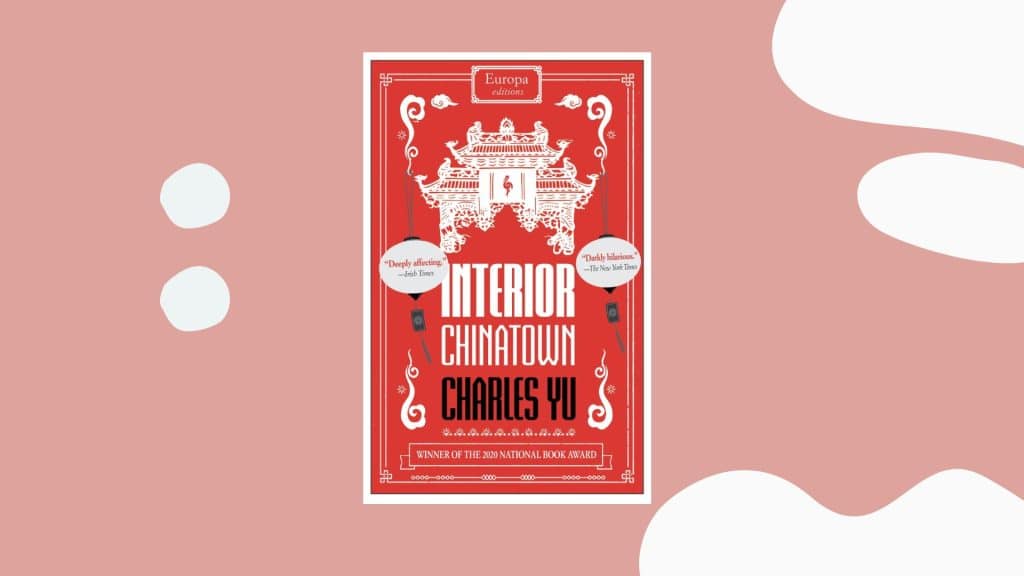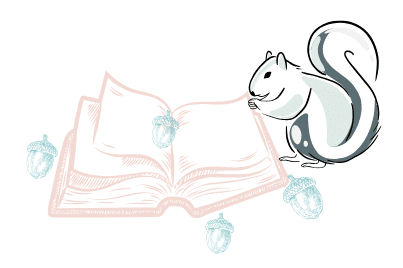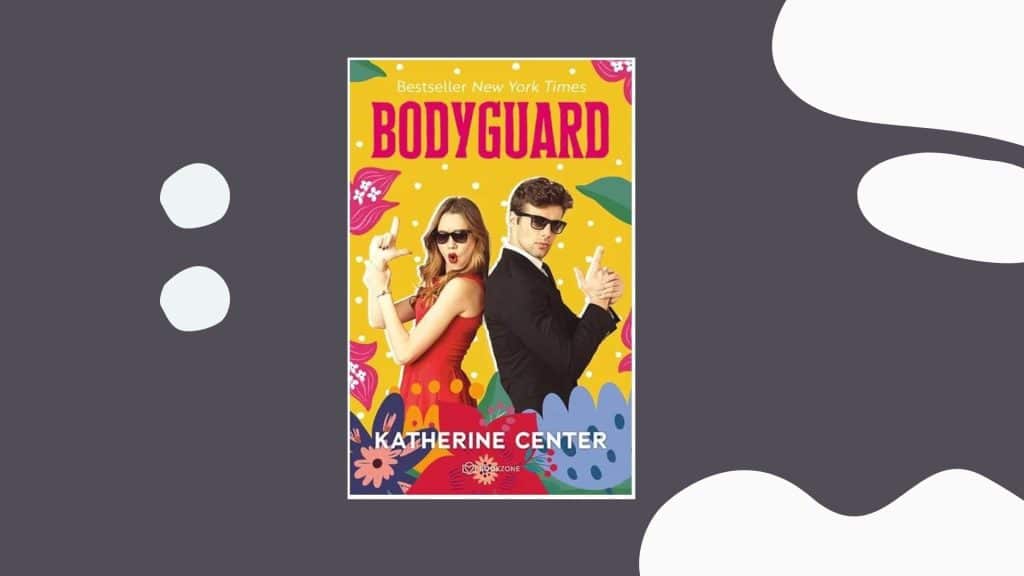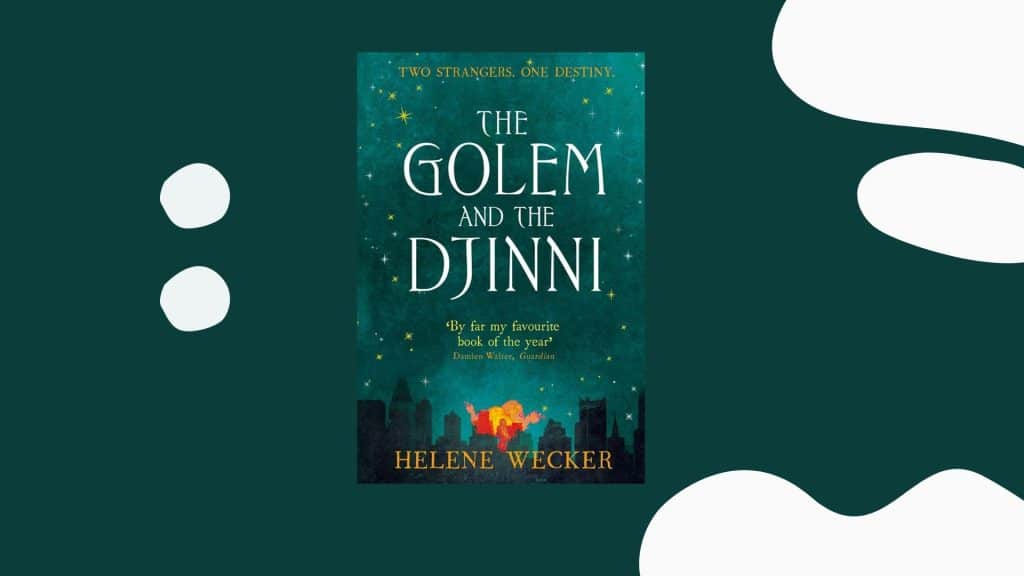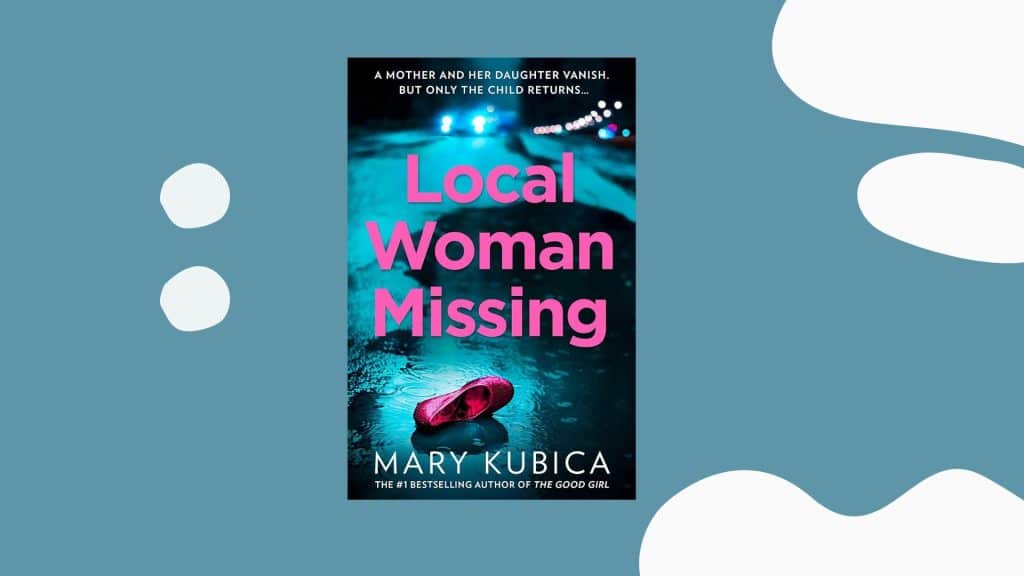“There are a few years when you make almost all of your important memories. And then you spend the next few decades reliving them.” – Charles Yu, Interior Chinatown’
Interior Chinatown by Charles Yu is a smart, funny, and emotional novel that examines race, identity, and the roles people are forced to play—both on screen and in real life. The story follows Willis Wu, a Taiwanese American man who lives in a building where everyone seems to be stuck playing parts in a TV show.
Willis has always dreamed of being “Kung Fu Guy,” the top role for someone who looks like him. But as he moves through life, he starts to question what those roles really mean and who decides them.
The book is written like a screenplay, which makes it fun and unique to read. It’s also a powerful look at how Asian Americans are seen in movies, TV shows, and society. It’s funny, sad, and honest—all at once.
Plot Summary
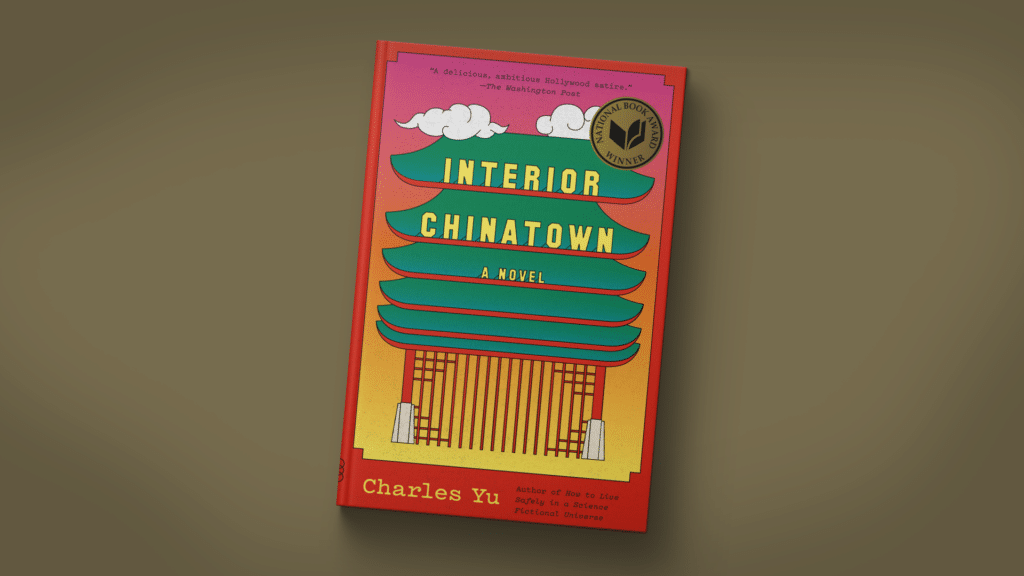
“The widest gulf in the world is the distance between getting by, and not getting by.”
― Charles Yu, Interior Chinatown
Storyline
Interior Chinatown follows Willis Wu, a Taiwanese American who lives above the Golden Palace restaurant. But this isn’t just a regular building—it’s also the set of a police TV show. Willis and others in his community are always stuck playing small roles like “Generic Asian Man” or “Delivery Guy.”
Willis dreams of becoming “Kung Fu Guy”, the top role someone like him can get. But as he moves through life, he starts to ask big questions: Who made these roles? Why do we have to play them? And what would it mean just to be yourself?
Characters
Willis Wu – The main character; a Taiwanese American man trying to move from “Generic Asian Man” to “Kung Fu Guy.”
Karen Lee – Willis’s love interest and the mother of his child; she also works on the TV show.
Older Brother (Unnamed) – Willis’s older brother who passed away young, deeply impacting the family.
Willis’s Father – A former “Kung Fu Guy” who once had bigger dreams but ended up settling for background roles.
Willis’s Mother is a hardworking woman who also played supporting roles and represents quiet strength and sacrifice.
Detective Turner is one of the main (non-Asian) characters on the TV show.
Detective Green is another main detective on the TV show and plays a leading role in the fake show world.
The Director – A voice of control that represents the system or industry shaping everyone’s roles.
Little Wu – Willis and Karen’s child.
Generic Asian Man – A repeating role that represents the limited parts given to Asian characters in Hollywood.
Themes and Plotline
The book discusses race, stereotypes, and identity extensively. It shows how society often assigns people roles—like actors in a show—and also deals with family, belonging, and what it means to be truly seen.
The story uses humor, sad moments, and a screenplay format to show how Willis slowly breaks away from the script he’s been handed and starts writing his own story. It’s not just about acting—it’s about real life and the roles we’re all expected to play.
What Genre (and Tropes) Does It Focus On?
About the Genre
Interior Chinatown is a mix of literary fiction, satire, and drama. It creatively tells a personal story using a screenplay format that makes the book feel like a TV script. This style is fun but also powerful—it helps readers understand how the main character, Willis Wu, feels stuck playing the same roles in life and on screen. The book dives deep into topics like race, identity, and belonging while still using humor and heart.
About the Tropes
This book isn’t a romance, so it doesn’t follow common romance tropes. But it does play with storytelling tropes—like the “hero’s journey” and the idea of chasing a dream role. Willis wants to become “Kung Fu Guy,” which is the best part someone like him is “allowed” to play. The book takes that idea and turns it into something deeper and more meaningful.
What to Expect
Expect a creative, emotional, and sometimes funny story that makes you think. The book will make you reflect on how people are treated based on their background, how stereotypes work, and how hard it can be to step outside the role the world gives you. You’ll find thoughtful moments, clever writing, and a strong message about being seen for who you really are.
Ratings and Reviews
On Goodreads, the novel holds an average rating of 3.96 out of 5, based on over 65,000 ratings and approximately 9,500 reviews.
The book has garnered numerous positive reviews on Amazon, with readers praising its unique format and thought-provoking themes.
Notable Quotes from the Book
One of the standout lines from Interior Chinatown is:
“Ever since you were a boy, you’ve dreamt of being Kung Fu Guy.”
This quote encapsulates the protagonist, Willis Wu’s, aspiration to transcend the stereotypical roles assigned to Asian actors.
Selected Goodreads Reviews
Readers on Goodreads have shared insightful feedback:
-
Roxana Sabau rated it 4 out of 5 stars, stating:
“An innovative writing style for sure. But that’s not what makes it great, it’s Yu’s sarcastic way of mocking the portrayal of immigrants in pop culture.”
-
Angie Kim gave a 5-star review, commenting:
“Brilliant and devastating. I loved the whole thing—the creative structure and form, the humor, the brutal social commentary…”
Selected Amazon Reviews
Critics have also praised the novel:
-
The New York Times Book Review describes it as:
“Interior Chinatown represents yet another stellar destination in the journey of a sui generis author of seemingly limitless skill and ambition.”
-
Entertainment Weekly highlights:
“A sharply observed, darkly humorous evocation of the Asian American experience.”
What Sets the Book Apart
Interior Chinatown stands out for its unique format, written as a screenplay. This format immerses readers in Willis Wu’s world as he navigates the challenges of stereotypical roles in Hollywood.Charles Yu masterfully blends humor and satire to shed light on serious issues of race, identity, and representation.This inventive approach not only entertains but also prompts readers to reflect on broader societal narratives.
Who Should Read This Book?
Interior Chinatown is a great read for teens and adults who enjoy stories about identity, culture, and finding one’s place in the world. It’s written in a fun screenplay style that’s different from most books, which makes it feel fresh and creative.
Age and Content Warning
This book is best for readers age 14 and up. It includes some mature themes, such as racism, stereotypes, and discrimination. There’s also a bit of strong language and tough family moments, so it’s good for readers who are okay with those topics. While it’s serious in parts, the story uses humor to make hard subjects easier to understand.
Book Recommendations If You Liked Interior Chinatown
If you enjoyed Interior Chinatown, you’re probably into books that are funny, emotional and make you think about real-life issues like identity, race, and fitting in. Here are some other books that readers have really liked for similar reasons:
- _American Born Chinese by Gene Luen Yang
- The Absolutely True Diary of a Part-Time Indian by Sherman Alexie
- On Earth We’re Briefly Gorgeous by Ocean Vuong
- Minor Feelings by Cathy Park Hong
- They Called Us Enemy by George Takei
These books, like Interior Chinatown, illuminate identity, stereotypes, and what it means to feel like an outsider while still telling a great story.
Conclusion
Interior Chinatown is a smart, funny, and powerful book that shows what it’s like to live in a world where you’re often seen as a stereotype. Through Willis Wu’s story, readers get a deeper look at identity, family, and the struggle to break out of roles that don’t feel true. The screenplay style makes it fun to read while still tackling serious topics in a way that’s easy to understand.
If you enjoy books that are creative, emotional, and make you think about real life, this one is worth checking out. It’s a great choice for teens and adults who are interested in culture, race, and how people find their place in the world.
In the end, Interior Chinatown isn’t just about acting—it’s about who we really are underneath the roles we play every day.
Frequently Asked Questions
Is Interior Chinatown a satire?
Yes, Interior Chinatown is a satire. It uses humor and a screenplay format to show how Asian Americans are often stuck in stereotypes, especially in TV, movies, and real life.
What happened to an older brother in Interior Chinatown?
Willis Wu’s older brother died when he was young. His death deeply affected Willis and his parents, creating a quiet pain in the family that was never fully talked about. It also added to the pressure Willis felt to succeed and make his parents proud.
Who is Karen in Interior Chinatown?
Karen is Willis Wu’s love interest in Interior Chinatown. She works on the TV show set and is also the mother of his child. Their relationship is complex, showing how stereotypes and roles can shape real-life connections.
Does Wilis become a kung fu guy?
Yes, Willis does become Kung Fu Guy, the role he always dreamed of. But once he gets it, he realizes it’s still just another stereotype. What he really wants is to be seen as himself, not a role.


